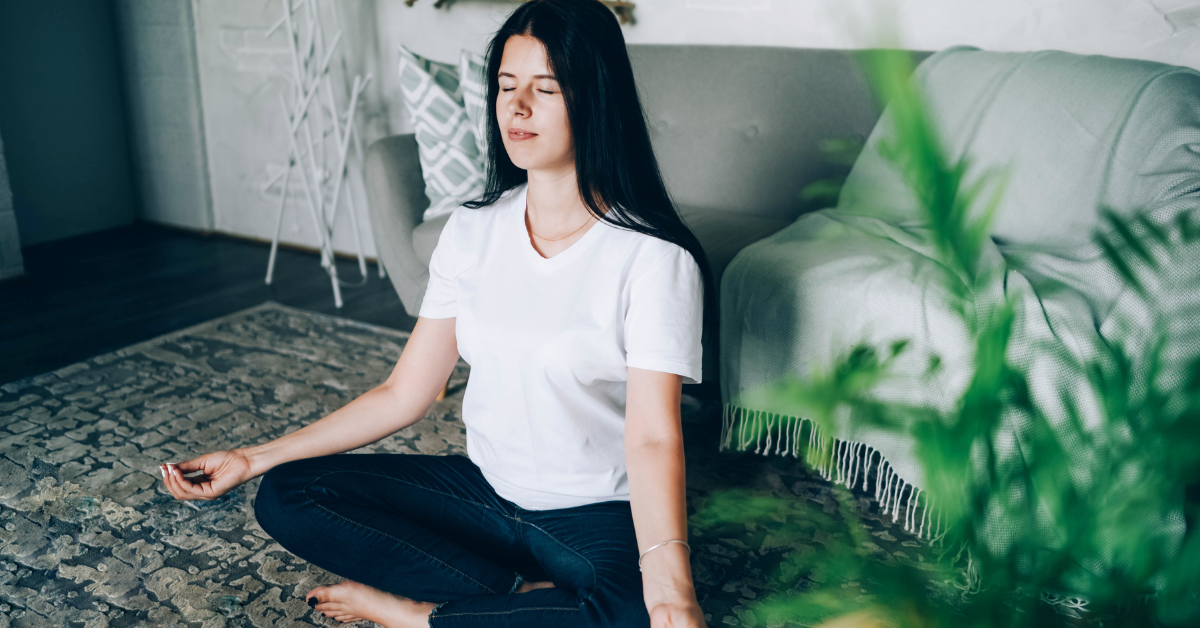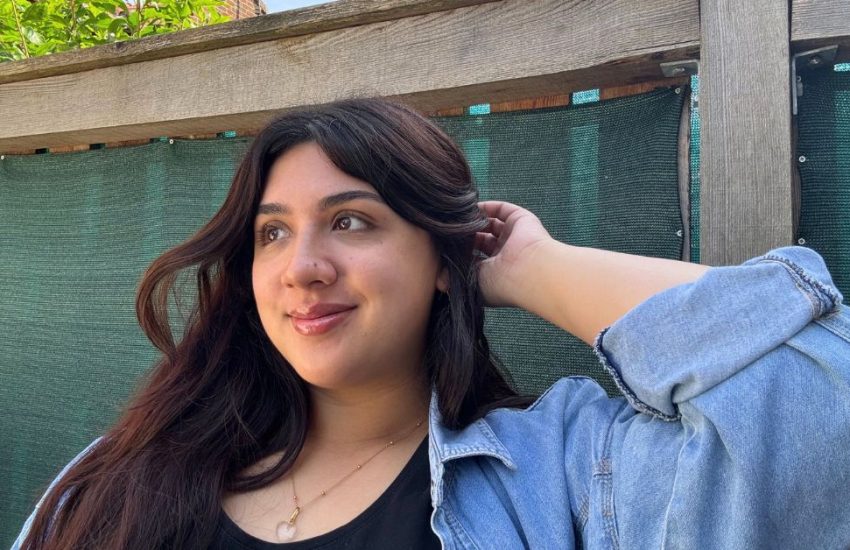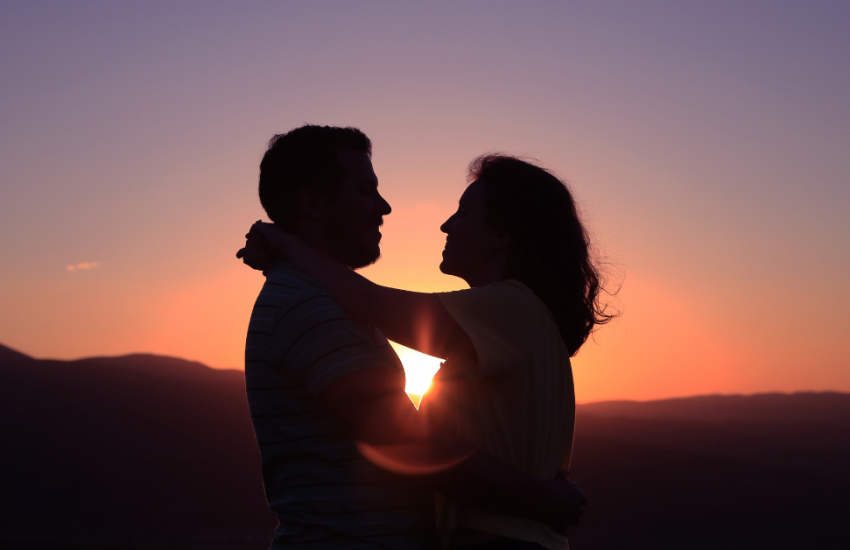4 Key Reasons to Practice Meditation for Stress and Anxiety Relief
Have you ever considered trying meditation for stress and anxiety relief?
You would be right to think dedicating regular time to meditation for stress and anxiety relief takes determination.
Meditation for stress and anxiety relief isn’t something you can master overnight. However, it can drastically improve your life. Let’s get into how.
Where did meditation originate?
Meditation originated way back in 1500 BCE. The earliest records mention meditation as part of the Hindu tradition in India.
Paramahansa Yogananda is known as ‘the father of meditation’. He introduced meditation’s peaceful practices to the West in 1920.
Meditation has since spread like wildfire (but a damn good wildfire, that thankfully hasn’t been lost in time and for good reason).
What is meditation?
Simply, meditation is a spiritual practice that requires us to focus on and clear our mind. More broadly, connect to our inner Being.
Albeit, it’s not as airy fairy as some initially believe (when they jump to an image of a levitating monk *face palm).
There are countless styles and techniques of meditation to explore. My favourites are vipassana and mindfulness, and unstructured meditation which allows me to dive deep into my psyche.
A key purpose of meditation is to enter a more tranquil state to relieve stress and anxiety symptoms.
We were not designed to be flooded and overwhelmed by our emotions, but instead control them and focus on positive thoughts and feelings to appreciate life as it unfolds and live authentically.
On the whole, meditation is a physical, mental, emotional and spiritual experience that’s uplifting and calming for many.
Meditation allows you to get to know yourself on a deeper level, and thus relieve stress and anxiety from the inside out.
And i’m not talking about getting to know yourself better by, for example, learning what your real favourite colour is. Instead, more meaningful explorations such as, what is my purpose? What do I care about? How can I gain more fulfillment in life?
I have been practising meditation for the last seven years, and I have yet to discover a more constructive way to relieve stress and anxiety symptoms.
If you are constantly overthinking, it can be a superior self-care and self-awareness technique you can benefit from daily. Even if you start with just 5 minutes a day and build from there.
Meditation for stress and anxiety vs mindfulness

As you can see, meditation and mindfulness are similar. They both benefit the mind, body and soul.
Meditation focuses on our inner world and mindfulness more on the outer. But as you likely know, our inner and outer worlds are highly connected. When one improves the other follows.
They can also be used cooperatively to some degree (eyes are open in mindfulness practice).
The biggest reasons why you should practice meditation for stress and anxiety
1. Clearing of the mind
You know how people say ‘lost in thought’? Well, meditation builds our awareness of thoughts as a controllable instrument in life.
When you’re constantly on-the-go or have accumulated a mental list of things to worry about (even the best of us do it) learning to slow and clear your mind is crucial.
Because, if you find yourself stuck in a constant state of thinking, you become distracted from finding joy in the present moment and connecting to your inner peace. You think rather than experience.
Thus, meditation is highly beneficial to relieve stress caused by overthinking and over-worrying. As well as anxiety symptoms such as catastrophizing.
It’s easy to forget that 99% of the time worry and fear is fuelled by our imagination. Only 1% of what we believe will happen, actually happens.
Meditation teaches you to actively differentiate between beneficial thinking and critical overthinking.
2. Connect to your intuition
With a busy mind comes many distractions from your intuition.
One of the biggest ways to connect to your intuition is through meditation.
It takes practice to tune in to the hints it gives you throughout your day. But once you do, you spark your authentic power.
What is your intuition?
You could also call it your gut feeling or your true or higher self. It could also be considered your soul or Spirit or sixth sense.
Essentially, it’s when you know you know, but you don’t know how you know (you know what I mean).
Personally, I like to think of my intuition as my direct line to the Source/God. It’s knowing my truth through direct messages sent from my soul/spirit.
When I’m present and calm, I can trust that my thoughts are not dictated by anxiety or stress. Instead, hints and feelings I can trust to make the best decisions in life.
Thus, when you learn to connect to your intuition and tune into its ingenuity, you know when something is or isn’t meant for you.
You feel it deep down with clarity and peace. It calls to you through the noise of the world.
Professionals in the field of psychology and psychotherapy describe the intuition as our subconscious mind communicating with our conscious mind. And that makes a lot of sense as to why the source of our intuition is often confusing. Because it’s a subconcious (unknown) line of communication.
This also explains why people with significant emotional trauma find it hard to speak their truth and live their lives authentically. It can be hard to be honest with ourselves and look into the darker parts of our inner Being.
Overall, trusting your intuition doesn’t require contemplation or logical reasoning. Rather, your instinctive reaction and feeling to a specific situation or person.
If you practise meditation for stress and anxiety enough, your intuitive internal voice grows and helps you navigate life with more ease and purpose.
3. Relieve bodily tension with meditation for stress and anxiety
Developing your awareness of your physical state and sensations is another key benefit to meditation.
When you’re in your head, it’s easy to forget to tune into your body. It can seem like you’re playing a video-game character on auto-pilot.
Meditation allows you to build conscious awareness of your body to help relieve physical anxiety symptoms such as headaches, shoulder pain, chest pain and more. Mainly through body scans and mindfulness techniques.
When you sit there and breathe deep and meditate, you start to pick up on the fact your shoulders are by your ears, you’re frowning, and tensing your jaw. Things which normally go unnoticed.
When I began meditating I realised my body was turned slightly left due to frequent desk work and workplace pressure. Meditation helped to correct my body positioning and posture, and subsequently, the anxiety surrounding my work.
There’s just too many physical symptoms of anxiety and stress meditation can help.
4. Presence
Ever feel like you have your head in the clouds way too often? Perhaps you daydream a lot? Get caught up in a thought and chase it right down ‘imagination lane’?
Similar to clearing your mind, meditation can help you come back down to earth i.e help you stay grounded and present.
Stress and anxiety often take us away from the present moment. Worries about the past and future. That awkward conversation you had 5 years ago.
By observing the world around you moment to moment by grounding yourself through your body, you learn to appreciate life more.
You also become more graceful and peaceful. More accepting of life as it unfolds before you. Thus, less anxious and stressed out about things you cannot control or the thoughts of others.
Life becomes a never ending stream of experiences you tackle as they come. Now, doesn’t that sound amazing?
Practicing vipassana meditation (body scans) is a fantastic way to build awareness of your body to ground yourself.
My biggest tip for vipassana? Focus mainly on your head, hands and feet. Allow your energy to flow in and out of those areas. This will help you balance your entire body’s energy. The next step is chakra balancing (but that’s for another day).
As you can see, meditation has dozens of benefits that contribute to the management of stress and anxiety on a daily basis.
Meditation is by far the most ancient and universal technique to combat stress and anxiety. I really do hope you give it a go. Please subscribe down below to be updated about my new blogs.
Follow me on social media for daily doses of wellness and anxiety related content, and to follow my journey:
For a more hands-on approach to minimising anxiety and stress, head to my other blog that’s all about massage guns that help to relieve physical symptoms of anxiety and stress.


